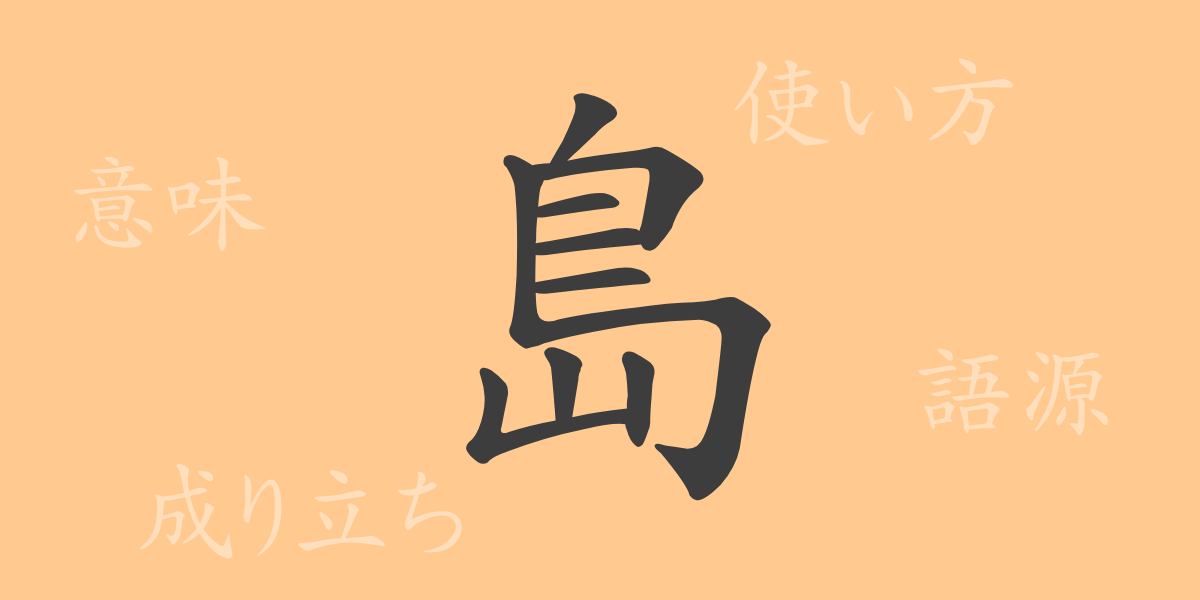Japan, an archipelago comprising thousands of islands, deeply embeds the Kanji ‘島 (とう)’ into the lives of its people. This simple yet potent character plays a significant role in depicting Japan’s nature, culture, and the mental landscapes of its people. In this article, we delve into the Kanji ‘島’, exploring its origins, meanings, usage, and appearances in the Japanese language.
Origins of ‘島 (とう)’
The Kanji ‘島’ originates from ancient Chinese oracle bone script. Initially used to depict land surrounded by water, it has long been used in Japan to describe lands enveloped by nature. The character combines radicals symbolizing nature like mountains or rivers and a part depicting a bird in flight, conjuring images of birds seeking sanctuary on water-enclosed lands.
Meaning and Usage of ‘島 (とう)’
‘島’ directly refers to land surrounded by water. Broadly, it denotes any land surrounded by water bodies like seas or lakes and specifically refers to Japan’s administrative classification of ‘island provinces’ excluding Honshu, Shikoku, Kyushu, and Hokkaido. The term is widely used in place names and to describe specific scenarios like ‘isolated island’ or ‘uninhabited island’.
Readings, Stroke Count, and Radical of ‘島 (とう)’
Let’s examine the structure and readings of the Kanji ‘島’:
- Readings: On’yomi ‘トウ’, Kun’yomi ‘しま’
- Stroke Count: A total of 10 strokes.
- Radical: The primary radical is ‘山’, but it also includes ‘鳥’ and ‘小’.
Phrases, Idioms, and Proverbs Using ‘島 (とう)’
Many idioms and proverbs include ‘島’, reflecting the Japanese people’s familiarity and perception of islands.
- ‘島国根性 (しまくにこんじょう)’: Refers to the insular and closed nature or mindset characteristic of a country surrounded by the sea.
- ‘島影を隠す (しまかげをかくす)’: To completely disappear.
- ‘島流し (しまながし)’: Historically a punishment of exile to a distant island for criminals, now metaphorically used to describe social isolation.
Conclusion on ‘島 (とう)’
The Kanji ‘島’ not only symbolizes Japan’s geographical features but also deeply intertwines with the Japanese identity and linguistic culture. Understanding the rich meanings and usage of this character unlocks deeper insights into Japan’s natural settings, history, and society. As we appreciate the natural blessings of being an island nation and the culture and language that have arisen from it, we continue to cherish the Kanji ‘島’.

























